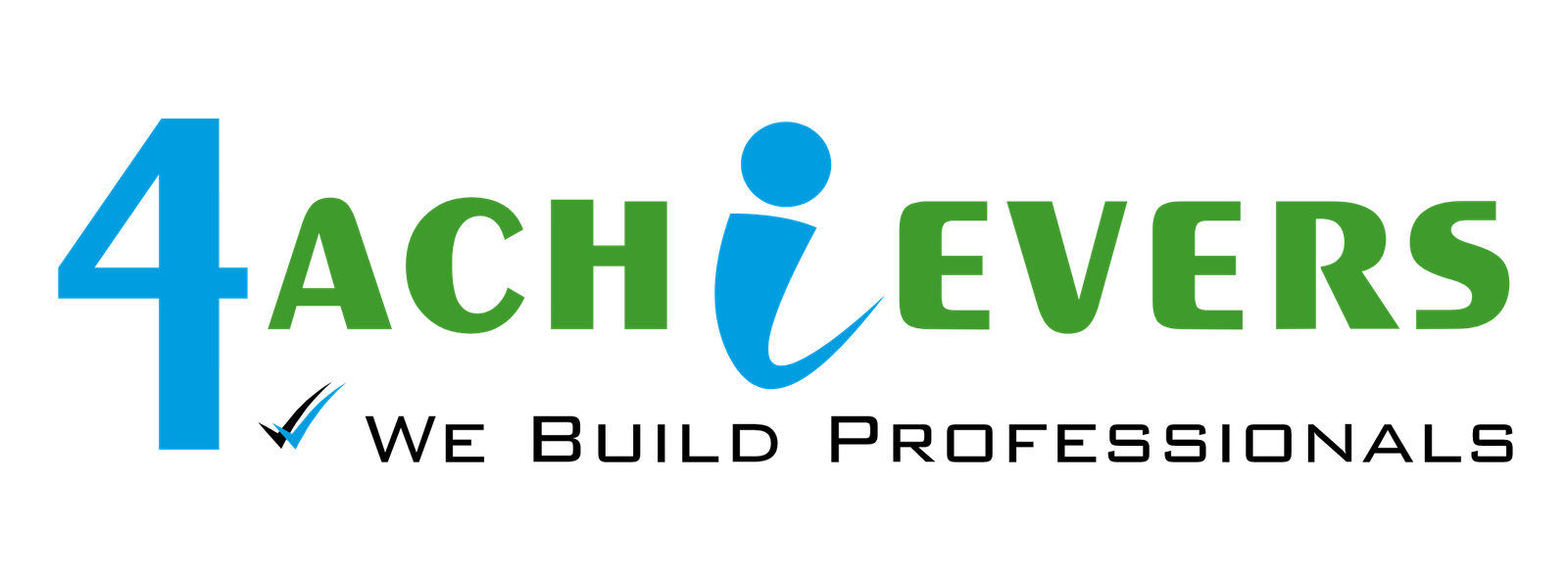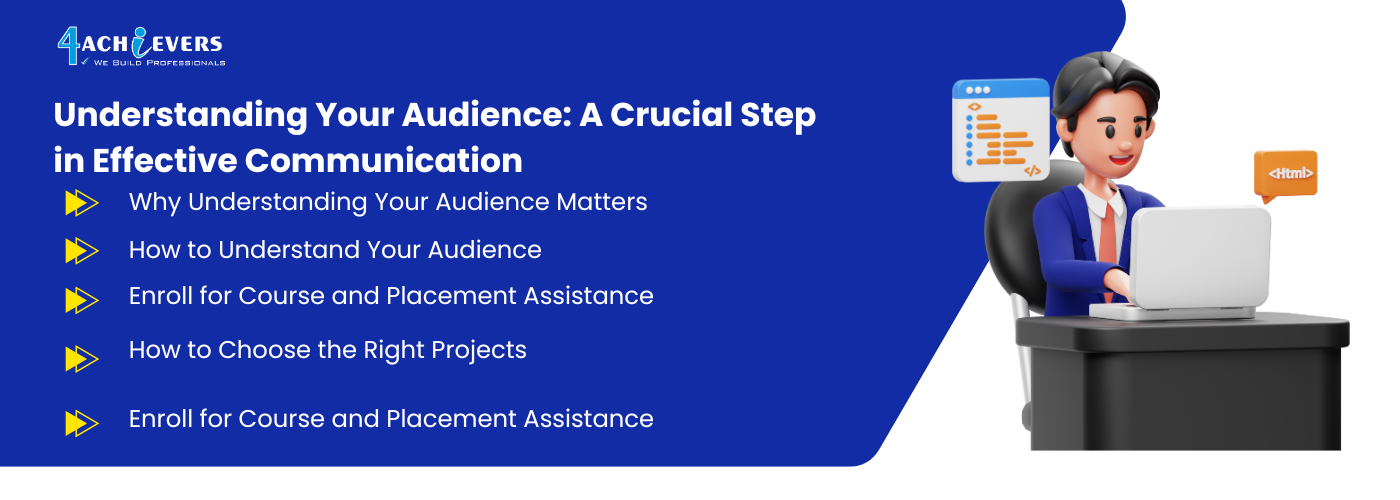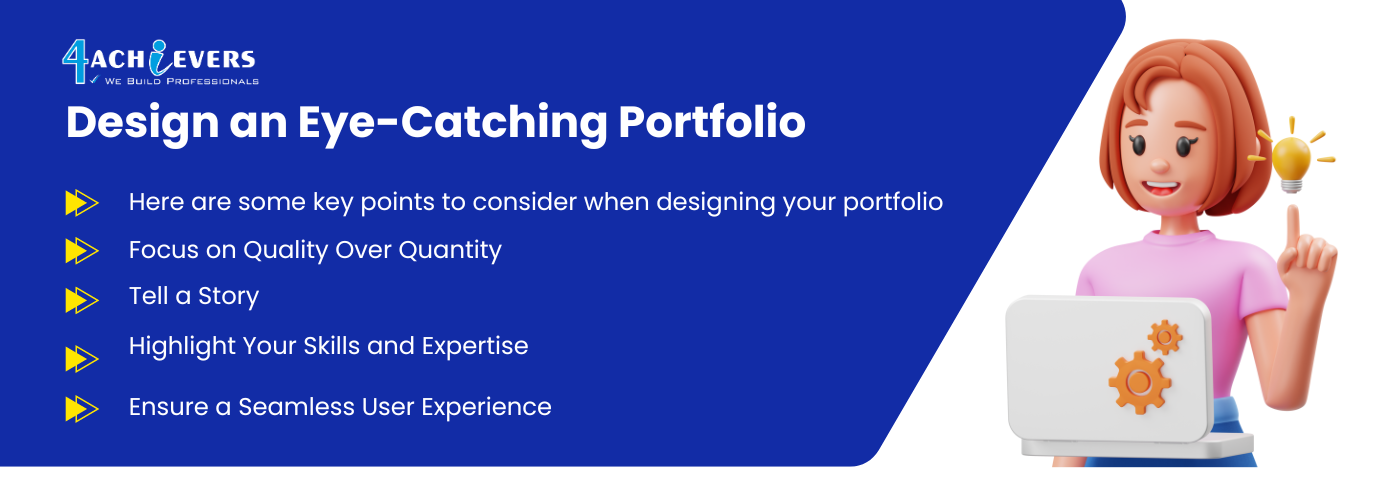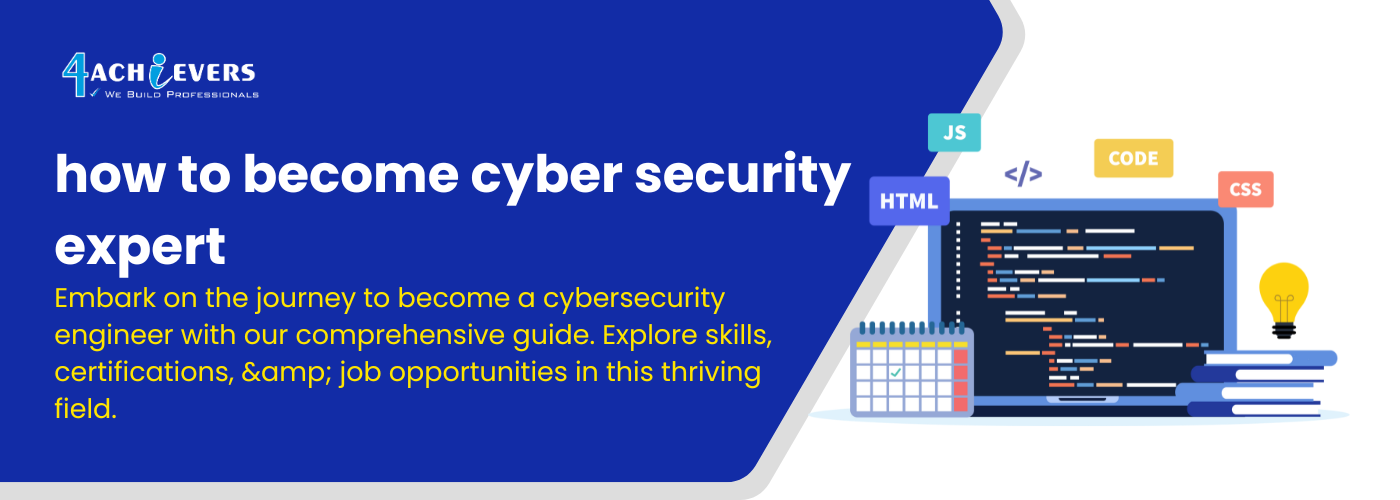How to Build a Developer Portfolio That Stands Out in 2025
Demystifying Portfolios: Your Gateway to Professional Success
In the realm of career advancement, the term "portfolio" holds significant weight. But what exactly is a portfolio, and why is it crucial for professionals across various industries? Let's delve into the essence of portfolios and understand their importance in shaping your career trajectory.
Defining a Portfolio:
At its core, a portfolio is a curated collection of work samples, achievements, projects, and experiences that showcase an individual's skills, expertise, and accomplishments. It serves as a tangible representation of one's capabilities and serves various purposes, depending on the field of work.
Types of Portfolios:
Portfolios come in diverse formats, tailored to suit different professions and objectives. For instance, in the creative realm, portfolios often feature visual artwork, design projects, or multimedia creations. In contrast, professionals in business, education, or technology may present portfolios comprising case studies, reports, or coding projects.
Importance of Portfolios:
Portfolios play a pivotal role in several aspects of professional life:
Career Advancement:
A well-crafted portfolio can significantly enhance your prospects for career growth and advancement. It provides tangible evidence of your skills and accomplishments, allowing potential employers or clients to gauge your suitability for a role or project.
Job Applications:
In today's competitive job market, a compelling portfolio can set you apart from other candidates during the hiring process. It serves as a visual resume, offering recruiters a comprehensive insight into your abilities and suitability for the role.
Showcasing Expertise:
Whether you're a designer, developer, writer, or marketer, a portfolio serves as a platform to showcase your expertise and proficiency in your chosen field. It enables you to demonstrate your skills, creativity, and problem-solving abilities through tangible examples of your work.
Building Credibility:
A robust portfolio enhances your professional credibility and reputation. It provides evidence of your past successes and contributions, instilling confidence in potential employers or clients about your capabilities and reliability.
Networking and Collaboration:
Portfolios serve as valuable networking tools, enabling professionals to showcase their work to potential collaborators, clients, or mentors. They facilitate meaningful connections and collaborations, opening doors to new opportunities and projects.
-
Career Advancement: A well-crafted portfolio can significantly enhance your prospects for career growth and advancement. It provides tangible evidence of your skills and accomplishments, allowing potential employers or clients to gauge your suitability for a role or project.
-
Job Applications: In today's competitive job market, a compelling portfolio can set you apart from other candidates during the hiring process. It serves as a visual resume, offering recruiters a comprehensive insight into your abilities and suitability for the role.
-
Showcasing Expertise: Whether you're a designer, developer, writer, or marketer, a portfolio serves as a platform to showcase your expertise and proficiency in your chosen field. It enables you to demonstrate your skills, creativity, and problem-solving abilities through tangible examples of your work.
-
Building Credibility: A robust portfolio enhances your professional credibility and reputation. It provides evidence of your past successes and contributions, instilling confidence in potential employers or clients about your capabilities and reliability.
-
Networking and Collaboration: Portfolios serve as valuable networking tools, enabling professionals to showcase their work to potential collaborators, clients, or mentors. They facilitate meaningful connections and collaborations, opening doors to new opportunities and projects.
Crafting an Effective Portfolio
Building a compelling portfolio requires careful planning, curation, and presentation:
-
Select Your Best Work: Choose a selection of your most impressive and relevant work samples to include in your portfolio. Focus on quality over quantity and ensure that each piece demonstrates your skills and expertise effectively.
-
Organize and Showcase: Arrange your portfolio in a logical and visually appealing manner. Use categories, tags, or sections to organize your work, making it easy for viewers to navigate and explore.
-
Tell Your Story: Provide context and background information for each project or achievement featured in your portfolio. Explain your role, the challenges you faced, and the outcomes achieved, giving viewers a deeper understanding of your contributions.
-
Keep It Updated: Regularly update your portfolio with new projects, skills, and accomplishments to keep it current and relevant. Remove outdated or less relevant work samples to maintain a polished and impactful portfolio.
| Select Your Best Work |
Choose a selection of your most impressive and relevant work samples to include in your portfolio. Focus on quality over quantity and ensure that each piece demonstrates your skills and expertise effectively. |
| Organize and Showcase |
Arrange your portfolio in a logical and visually appealing manner. Use categories, tags, or sections to organize your work, making it easy for viewers to navigate and explore. |
| Tell Your Story |
Provide context and background information for each project or achievement featured in your portfolio. Explain your role, the challenges you faced, and the outcomes achieved, giving viewers a deeper understanding of your contributions. |
| Keep It Updated |
Regularly update your portfolio with new projects, skills, and accomplishments to keep it current and relevant. Remove outdated or less relevant work samples to maintain a polished and impactful portfolio. |
In conclusion, a portfolio is much more than a mere collection of work samples; it's a powerful tool for professional advancement, networking, and showcasing expertise. Whether you're seeking a new job, pursuing freelance opportunities, or aiming to elevate your career, a well-crafted portfolio can be your ticket to success.
For individuals aspiring to enhance their skills and create standout portfolios, 4Achievers offers comprehensive courses and placement assistance. With their expert guidance and support, you can embark on a journey towards professional excellence and career fulfillment. Contact 4Achievers today to unlock your potential and chart a path to success!
How to Build a Developer Portfolio That Stands Out?
In the competitive world of tech, having a strong developer portfolio is crucial for standing out from the crowd and landing your dream job. Whether you're a seasoned developer looking to switch jobs or a fresh graduate entering the workforce, a well-crafted portfolio can make all the difference. In this blog post, we'll explore the essential elements of a standout developer portfolio and provide tips on how to create one that grabs the attention of recruiters and hiring managers.
Why Your Developer Portfolio Matters?
Before diving into the specifics of building a standout portfolio, let's first understand why it's so important. Your portfolio is essentially your digital resume, showcasing your skills, expertise, and projects to potential employers. It gives them a glimpse into what you're capable of and helps them assess whether you're the right fit for their team.
Essential Elements of a Standout Developer Portfolio
-
Clear and Concise Introduction: Start your portfolio with a brief introduction about yourself, highlighting your skills, experience, and areas of expertise. Keep it concise yet impactful to grab the reader's attention from the get-go.
-
Projects Showcase: The heart of your portfolio lies in showcasing your projects. Include a variety of projects that demonstrate your skills across different technologies and domains. Provide a brief description of each project, outlining the problem it solves, the technologies used, and your role in the project.
-
Code Samples: Along with project descriptions, include snippets of code to give recruiters an insight into your coding style and problem-solving abilities. Highlight any particularly challenging or innovative solutions you've implemented.
-
Skills and Technologies: Create a section dedicated to listing your skills and technologies. Be honest about your proficiency level in each skill, whether it's beginner, intermediate, or expert. This helps recruiters assess your suitability for specific roles.
-
Testimonials and Recommendations: If you've received positive feedback from clients, colleagues, or mentors, consider including testimonials or recommendations in your portfolio. This adds credibility to your skills and strengthens your professional reputation.
-
Responsive Design: Ensure that your portfolio website is visually appealing and easy to navigate on all devices, including desktops, laptops, tablets, and smartphones. A responsive design demonstrates your attention to detail and commitment to delivering quality work.
Tips for Creating a Standout Portfolio
-
Showcase Your Best Work: Choose projects that highlight your strengths and expertise. Quality trumps quantity, so focus on showcasing a few high-quality projects rather than overwhelming recruiters with mediocre ones.
-
Keep It Updated: Regularly update your portfolio with new projects, skills, and experiences. This shows that you're actively learning and growing as a developer.
-
Personalize Your Portfolio: Tailor your portfolio to reflect your unique personality and style. Add personal touches that differentiate you from other candidates and make a lasting impression on recruiters.
-
Optimize for SEO: To increase your portfolio's visibility online, optimize it for search engines by incorporating relevant keywords related to your skills, technologies, and desired job roles.
Enroll for Course and Placement Assistance
Looking to enhance your skills and kickstart your career in tech? Consider enrolling in a comprehensive Web Development Courses in Noida like the one offered by 4Achievers. With expert guidance and placement assistance, you'll gain the knowledge and confidence to build a standout developer portfolio and land your dream job in the tech industry.
In conclusion, a standout developer portfolio is a powerful tool for showcasing your skills, expertise, and potential to prospective employers. By following the tips outlined in this blog post and enrolling in a reputable training program like 4Achievers, you can take your career to new heights and stand out in the competitive world of tech. Start building your portfolio today and watch your career soar!
Understanding Your Audience: A Crucial Step in Effective Communication
In the digital age, where information is abundant and attention spans are fleeting, understanding your audience is paramount to effective communication. Whether you're crafting content for a website, social media platform, or marketing campaign, knowing who you're speaking to can make all the difference in capturing their attention and driving meaningful engagement. In this blog post, we'll delve into the importance of understanding your audience and provide actionable tips on how to do so effectively.
Why Understanding Your Audience Matters?
Before diving into content creation or marketing strategies, it's essential to grasp who your audience is and what they care about. Here's why:
-
Tailored Communication: By understanding your audience's demographics, interests, and preferences, you can tailor your communication to resonate with them on a deeper level. This increases the likelihood of capturing their attention and eliciting a response.
-
Relevance and Value: Delivering content that addresses your audience's needs and interests adds value to their experience. It demonstrates that you understand their concerns and are committed to providing relevant solutions or information.
-
Building Trust and Loyalty: When your audience feels understood and valued, they're more likely to trust your brand and become loyal followers or customers. This fosters long-term relationships and can lead to advocacy and word-of-mouth referrals.
How to Understand Your Audience?
Now that we've established the importance of audience understanding, let's explore some practical ways to achieve it:
-
Conduct Market Research: Start by gathering data on your target audience's demographics, such as age, gender, location, income level, and occupation. This information provides a foundational understanding of who your audience is and helps tailor your messaging accordingly.
-
Utilize Analytics Tools: Leverage analytics tools like Google Analytics, social media insights, and email marketing analytics to gain deeper insights into your audience's behavior and preferences. Track metrics such as website traffic, engagement rates, and conversion rates to identify patterns and trends.
-
Engage in Social Listening: Monitor social media platforms, forums, and online communities relevant to your industry or niche. Pay attention to conversations, comments, and feedback to understand what topics resonate with your audience and what pain points they're experiencing.
-
Create Buyer Personas: Develop detailed buyer personas that represent different segments of your target audience. Include information about their goals, challenges, interests, and preferred communication channels. Use these personas as reference points when crafting content and messaging.
-
Collect Feedback: Actively seek feedback from your audience through surveys, polls, and direct communication channels. Ask about their preferences, opinions, and suggestions for improvement. Incorporate this feedback into your content strategy to better meet their needs and expectations.
Enroll for Course and Placement Assistance
Are you looking to deepen your understanding of audience engagement and digital marketing strategies? Consider enrolling in a comprehensive course offered by 4Achievers. With expert guidance and placement assistance, you'll gain the knowledge and skills needed to excel in the dynamic field of digital marketing.
In conclusion, understanding your audience is the foundation of effective communication and marketing. By investing time and effort into researching and analyzing your audience's demographics, behaviors, and preferences, you can create content and campaigns that resonate with them on a meaningful level. Start understanding your audience today and watch your engagement and loyalty soar!
Choosing the Right Projects: A Key to Success in Your Career
In the ever-evolving landscape of professional development, selecting the right projects can significantly impact your career trajectory. Whether you're a seasoned professional looking to advance or a fresh graduate eager to make your mark, strategic project selection is essential for growth and success. In this blog post, we'll explore the importance of choosing the right projects and provide insights on how to do so effectively.
Why Choosing the Right Projects Matters?
The projects you choose to undertake play a crucial role in shaping your skills, experiences, and professional reputation. Here's why selecting the right projects is paramount:
-
Skill Development: Engaging in projects that align with your career goals allows you to develop and sharpen relevant skills. Whether it's mastering a new programming language, honing your leadership abilities, or refining your problem-solving skills, the right projects provide invaluable opportunities for growth.
-
Career Advancement: Strategic project selection can open doors to new opportunities and advancements in your career. Working on high-impact projects that showcase your abilities and deliver tangible results enhances your visibility and credibility within your organization and industry.
-
Professional Satisfaction: Choosing projects that resonate with your interests and passions contributes to greater job satisfaction and fulfillment. When you're genuinely invested in the work you're doing, you're more likely to perform at your best and derive a sense of purpose from your contributions.
How to Choose the Right Projects?
Now that we've established the importance of project selection, let's delve into some strategies for making informed choices:
-
Align with Your Goals: Start by identifying your short-term and long-term career goals. What skills do you want to develop? What industries or domains are you interested in exploring? Choose projects that align with these goals to ensure that your efforts contribute to your professional growth and advancement.
-
Assess Impact and Visibility: Evaluate the potential impact and visibility of each project before committing. Projects that have a significant impact on your organization's bottom line or industry landscape are often more valuable in terms of career advancement. Similarly, consider how visible your contributions will be and whether they align with your desired level of exposure.
-
Consider Learning Opportunities: Look for projects that offer ample opportunities for learning and skill development. Whether it's working with cutting-edge technologies, collaborating with experienced professionals, or tackling complex challenges, prioritize projects that stretch your capabilities and expand your knowledge base.
-
Balance Risk and Reward: Assess the risks and rewards associated with each project and strike a balance that aligns with your risk tolerance and career objectives. While high-risk projects may offer greater rewards, they also carry the potential for failure. Consider your comfort level and the potential impact on your career trajectory before taking on ambitious projects.
-
Seek Mentorship and Guidance: Don't hesitate to seek mentorship and guidance from senior professionals or mentors when evaluating project opportunities. Their insights and perspectives can help you make more informed decisions and navigate potential challenges more effectively.
Enroll for Course and Placement Assistance
Looking to enhance your project selection skills and advance your career in the tech industry? Consider enrolling in a comprehensive Web Development course in Dehradun offered by 4Achievers. With expert guidance and placement assistance, you'll gain the knowledge and skills needed to choose the right projects and excel in your career.
In conclusion, choosing the right projects is a critical aspect of career development and success. By aligning with your goals, assessing impact and visibility, prioritizing learning opportunities, balancing risk and reward, and seeking mentorship, you can make informed decisions that propel your career forward. Start choosing the right projects today and unlock your full potential!
How to Showcase Your Skills Effectively: A Guide to Career Advancemen
In today's competitive job market, effectively showcasing your skills is essential for career advancement and success. Whether you're seeking new employment opportunities or aiming for a promotion within your current organization, the ability to highlight your strengths and capabilities can make all the difference. In this blog post, we'll explore the importance of showcasing your skills effectively and provide actionable tips on how to do so to maximize your career prospects.
Why Showcasing Your Skills Matters
Your skills are your most valuable assets in the professional world. Here's why effectively showcasing them is crucial:
-
Differentiation: With numerous candidates vying for the same opportunities, showcasing your skills sets you apart from the competition. It helps recruiters and hiring managers understand what you bring to the table and why you're the right fit for the role.
-
Validation: Demonstrating your skills through tangible examples and accomplishments provides validation of your capabilities. It reassures employers that you have the expertise and experience necessary to excel in the role.
-
Career Growth: Effectively showcasing your skills opens doors to new opportunities for career advancement. Whether it's securing a higher-paying job, landing a coveted project, or earning a promotion, your ability to highlight your skills directly impacts your career trajectory.
Tips for Showcasing Your Skills Effectively
Now that we understand the importance of showcasing your skills, let's explore some strategies for doing so effectively:
-
Identify Your Key Skills: Start by identifying your key skills and strengths relevant to your desired career path. Whether it's technical skills, soft skills, or industry-specific expertise, make a list of the skills you want to highlight.
-
Quantify Your Achievements: Whenever possible, quantify your achievements to provide concrete evidence of your skills in action. For example, instead of simply stating that you improved efficiency, specify by how much (e.g., "Implemented a new process that reduced project turnaround time by 30%").
-
Create a Skills-Based Resume: Tailor your resume to highlight your skills prominently. Use a skills-based or combination format that showcases your skills at the top of the resume, followed by relevant experience and accomplishments.
-
Build a Strong Online Presence: Utilize professional networking platforms like LinkedIn to showcase your skills and accomplishments. Optimize your profile with relevant keywords, endorsements, and recommendations to increase your visibility to recruiters and employers.
-
Develop a Portfolio: Create a digital portfolio showcasing your work, projects, and accomplishments. Include case studies, project samples, or links to relevant work to provide tangible evidence of your skills and expertise.
-
Continuously Update Your Skills: Stay abreast of industry trends and developments by continuously updating and expanding your skill set. Pursue relevant certifications, attend workshops or seminars, and engage in lifelong learning to demonstrate your commitment to professional growth.
Enroll for Course and Placement Assistance
Are you looking to enhance your skills and advance your career? Consider enrolling in a comprehensive training program offered by 4Achievers. With expert guidance and placement assistance, you'll gain the knowledge and skills needed to effectively showcase your abilities and secure rewarding career opportunities.
In conclusion, effectively showcasing your skills is essential for career advancement and success. By identifying your key skills, quantifying your achievements, creating a strong online presence, developing a portfolio, and continuously updating your skills, you can differentiate yourself in the competitive job market and maximize your career prospects. Start showcasing your skills effectively today and unlock new opportunities for growth and advancement!
| Identify Your Key Skills |
Start by identifying your key skills and strengths relevant to your desired career path. Whether it's technical skills, soft skills, or industry-specific expertise, make a list of the skills you want to highlight. |
| Quantify Your Achievements |
Whenever possible, quantify your achievements to provide concrete evidence of your skills in action. For example, instead of simply stating that you improved efficiency, specify by how much (e.g., "Implemented a new process that reduced project turnaround time by 30%"). |
| Create a Skills-Based Resume |
Tailor your resume to highlight your skills prominently. Use a skills-based or combination format that showcases your skills at the top of the resume, followed by relevant experience and accomplishments. |
| Build a Strong Online Presence |
Utilize professional networking platforms like LinkedIn to showcase your skills and accomplishments. Optimize your profile with relevant keywords, endorsements, and recommendations to increase your visibility to recruiters and employers. |
| Develop a Portfolio |
Create a digital portfolio showcasing your work, projects, and accomplishments. Include case studies, project samples, or links to relevant work to provide tangible evidence of your skills and expertise. |
| Continuously Update Your Skills |
Stay abreast of industry trends and developments by continuously updating and expanding your skill set. Pursue relevant certifications, attend workshops or seminars, and engage in lifelong learning to demonstrate your commitment to professional growth. |
How to Showcase Your Skills Effectively: A Guide to Career Advancement
In today's competitive job market, effectively showcasing your skills is essential for career advancement and success. Whether you're seeking new employment opportunities or aiming for a promotion within your current organization, the ability to highlight your strengths and capabilities can make all the difference. In this blog post, we'll explore the importance of showcasing your skills effectively and provide actionable tips on how to do so to maximize your career prospects.
Why Showcasing Your Skills Matters
Your skills are your most valuable assets in the professional world. Here's why effectively showcasing them is crucial:
-
Differentiation: With numerous candidates vying for the same opportunities, showcasing your skills sets you apart from the competition. It helps recruiters and hiring managers understand what you bring to the table and why you're the right fit for the role.
-
Validation: Demonstrating your skills through tangible examples and accomplishments provides validation of your capabilities. It reassures employers that you have the expertise and experience necessary to excel in the role.
-
Career Growth: Effectively showcasing your skills opens doors to new opportunities for career advancement. Whether it's securing a higher-paying job, landing a coveted project, or earning a promotion, your ability to highlight your skills directly impacts your career trajectory.
Tips for Showcasing Your Skills Effectively
Now that we understand the importance of showcasing your skills, let's explore some strategies for doing so effectively:
-
Identify Your Key Skills: Start by identifying your key skills and strengths relevant to your desired career path. Whether it's technical skills, soft skills, or industry-specific expertise, make a list of the skills you want to highlight.
-
Quantify Your Achievements: Whenever possible, quantify your achievements to provide concrete evidence of your skills in action. For example, instead of simply stating that you improved efficiency, specify by how much (e.g., "Implemented a new process that reduced project turnaround time by 30%").
-
Create a Skills-Based Resume: Tailor your resume to highlight your skills prominently. Use a skills-based or combination format that showcases your skills at the top of the resume, followed by relevant experience and accomplishments.
-
Build a Strong Online Presence: Utilize professional networking platforms like LinkedIn to showcase your skills and accomplishments. Optimize your profile with relevant keywords, endorsements, and recommendations to increase your visibility to recruiters and employers.
-
Develop a Portfolio: Create a digital portfolio showcasing your work, projects, and accomplishments. Include case studies, project samples, or links to relevant work to provide tangible evidence of your skills and expertise.
-
Continuously Update Your Skills: Stay abreast of industry trends and developments by continuously updating and expanding your skill set. Pursue relevant certifications, attend workshops or seminars, and engage in lifelong learning to demonstrate your commitment to professional growth.
Enroll for Course and Placement Assistance
Are you looking to enhance your skills and advance your career? Consider enrolling in a comprehensive training program offered by 4Achievers. With expert guidance and placement assistance, you'll gain the knowledge and skills needed to effectively showcase your abilities and secure rewarding career opportunities.
In conclusion, effectively showcasing your skills is essential for career advancement and success. By identifying your key skills, quantifying your achievements, creating a strong online presence, developing a portfolio, and continuously updating your skills, you can differentiate yourself in the competitive job market and maximize your career prospects. Start showcasing your skills effectively today and unlock new opportunities for growth and advancement!
Design an Eye-Catching Portfolio: A Guide for Aspiring Designers
In today's competitive job market, having a standout portfolio is crucial for designers looking to land their dream job or freelance gigs. Your portfolio is essentially your visual resume, showcasing your skills, creativity, and unique style to potential clients or employers. Whether you're a graphic designer, web developer, or UI/UX designer, creating an eye-catching portfolio can significantly enhance your chances of success in the design industry.
Here are some key points to consider when designing your portfolio:-Showcase Your Best Work
Your portfolio should highlight your most impressive projects and designs. Choose a diverse range of pieces that demonstrate your versatility and expertise in different areas of design. Whether it's logos, websites, mobile apps, or branding projects, make sure each piece reflects your skills and aesthetic sensibilities.
Focus on Quality Over Quantity
While it's essential to showcase a variety of work, avoid overwhelming your portfolio with too many pieces. Instead, curate a selection of your best projects that effectively demonstrate your abilities. Remember, it's better to have a few outstanding pieces than a large collection of mediocre work
Tell a Story:
Use your portfolio to tell a compelling story about your journey as a designer. Provide context for each project, including the client brief, your design process, and the outcome. Sharing the story behind each piece not only engages the viewer but also demonstrates your problem-solving abilities and creative thinking skills.
Highlight Your Skills and Expertise
In addition to showcasing your projects, consider including sections that highlight your skills and expertise. This could include proficiency in design software, knowledge of design principles, or any specialized techniques you excel in. Providing this information gives potential clients or employers a better understanding of what you bring to the table.
Ensure a Seamless User Experience:
Your portfolio website should be easy to navigate and visually appealing. Choose a clean and modern design that puts your work front and center. Use high-quality images and clear, concise descriptions to present your projects effectively. Remember to optimize your site for mobile devices to ensure a seamless experience for all visitors.
Include Testimonials and Recommendations:
Social proof can be incredibly powerful in persuading potential clients or employers of your abilities. Consider including testimonials from satisfied clients or recommendations from former colleagues or mentors. These endorsements add credibility to your portfolio and can help establish trust with your audience.
Update Regularly:
Finally, remember that your portfolio is a dynamic tool that should evolve with your skills and experiences. Make it a habit to update your portfolio regularly with new projects, skills, and achievements. This shows that you're actively engaged in your craft and committed to growth as a designer.
At 4Achievers, we understand the importance of having a strong portfolio in the design industry. That's why we offer comprehensive courses that not only teach you the technical skills you need to succeed but also provide guidance on building an impressive portfolio and securing placement opportunities. With our expert instructors and personalized career support, you'll be well-equipped to launch a successful career in design. Contact us today to learn more and enroll in our programs. Your dream job awaits!
Elevate Your Career with 4Achievers: Enroll Today for Expert Training and Placement Assistance
In today's fast-paced world, acquiring the right skills and knowledge is essential for advancing your career. Whether you're a recent graduate looking to enter the workforce or a seasoned professional aiming to upskill, investing in quality education can open doors to new opportunities. At 4Achievers, we're committed to helping individuals achieve their career goals through expert training and placement assistance. With our comprehensive courses and personalized support, you can take your career to new heights.
Here are some key points to consider when choosing 4Achievers for your educational journey:
With our comprehensive courses and personalized support, you can take your career to new heights.
Expert Training from Industry Professionals:
Our courses are designed and delivered by experienced professionals who are experts in their respective fields. Whether you're interested in IT, software development, data science, or digital marketing, our instructors have the knowledge and expertise to provide you with top-notch training.
Hands-On Learning Experience
We believe in learning by doing. That's why our courses are designed to provide you with hands-on experience and practical skills that you can apply directly in the workplace. From coding exercises to real-world projects, you'll have plenty of opportunities to hone your skills and build a strong foundation for success.
Customized Curriculum:
We understand that every learner is unique, with different goals and learning styles. That's why we offer customized curriculum options to meet your specific needs and interests. Whether you're looking to master a particular technology or gain a comprehensive understanding of a specific field, we have a program for you.
Placement Assistance:
Securing a job after completing your training is just as important as acquiring new skills. At 4Achievers, we provide dedicated placement assistance to help you kick-start your career. From resume writing workshops to mock interviews and networking events, we'll support you every step of the way until you land your dream job.
Add Social Proof:
Don't just take our word for it – hear what our students have to say! Check out our testimonials page to read success stories from past students who have benefited from our courses and placement assistance. Their stories serve as social proof of the effectiveness of our programs and the impact they can have on your career.
Continued Support and Alumni Network:
Your journey with 4Achievers doesn't end when you complete your course. As a graduate, you'll gain access to our alumni network, where you can connect with other professionals, share insights, and access exclusive job opportunities. Plus, our team is always here to provide ongoing support and guidance as you navigate your career path.
SEO Optimization
If you're looking to boost your career prospects online, 4Achievers is the place to be. Our website is fully optimized for search engines, ensuring that you can easily find us when searching for relevant training and placement opportunities. With our SEO-friendly content and user-friendly interface, discovering the perfect course for your needs has never been easier.
Ready to take the next step in your career? Contact 4Achievers today to learn more about our courses and enrollment options. With our expert training and placement assistance, you'll be well on your way to achieving your career goals. Don't wait – invest in your future with 4Achievers today!
| Duration |
Mode |
| 7 - 10 Months |
Online & Classroom |
| Slots |
Weekdays & Weekends |
| Trainer |
Trainers with 10+ Exp, Php Developer with 10+ Exp, Node JS Developer with 10+ exp, Python Developer with 12+ Exp.
|
| Free Study Material |
Online Classes, Youtube, Pdfs, Recorded Sessions
|
| Projects |
5 Live Projects with Hosting |
| Eligibility |
Any Graduate /B.Tech/ M.Tech/ MCA/ BCA
|
Keep Your Portfolio Up-to-Date: A Key to Career Success
In the fast-paced world of design, your portfolio is your calling card. It's the first impression you make on potential clients or employers, showcasing your skills, creativity, and expertise. However, creating a stunning portfolio is just the beginning – to truly stand out in a competitive market, you must keep it up-to-date. Regularly updating your portfolio not only demonstrates your commitment to your craft but also ensures that you're showcasing your most recent and relevant work.
Here are some key points to consider when keeping your portfolio up-to-date:
Here are some key points to consider when keeping your portfolio up-to-date:
Add New Projects Regularly:
As you complete new projects, be sure to add them to your portfolio promptly. This could include anything from client work to personal projects or collaborations. By showcasing your latest work, you demonstrate that you're actively engaged in your field and continuously honing your skills.
Remove Outdated Work:
While it's essential to add new projects, it's equally important to remove outdated or less relevant work from your portfolio. As you grow and evolve as a designer, your style and skills may change, and older work may no longer reflect your current abilities or aesthetic. Keep your portfolio fresh and focused by periodically reviewing and culling outdated pieces.
Update Project Descriptions:
As you add new projects, take the time to update their descriptions to provide context and insights into your creative process. Share details about the client brief, your design approach, and the outcome of the project. This not only helps potential clients or employers understand your work but also showcases your problem-solving skills and thought process.
Refresh Visuals and Presentation
In addition to updating project content, consider refreshing the visuals and presentation of your portfolio. This could involve redesigning your website layout, updating images or videos, or refining your branding. A polished and visually appealing portfolio demonstrates your attention to detail and professionalism.
Highlight Recent Achievements:
If you've received any awards, accolades, or recognition for your work, be sure to highlight them in your portfolio. This could include industry awards, certifications, or positive feedback from clients or peers. Adding social proof enhances your credibility and reinforces your expertise to potential clients or employers.
Showcase New Skills or Specializations:
If you've acquired new skills or expertise since your last portfolio update, make sure to showcase them prominently. Whether it's mastering a new design tool, learning a programming language, or exploring a new design trend, highlighting your continuous learning and growth reinforces your value as a designer.
Optimize for SEO:
To ensure that your portfolio gets maximum visibility online, optimize it for search engines. Use relevant keywords and phrases throughout your portfolio content, including project titles, descriptions, and meta tags. This will help potential clients or employers find you when searching for design services or talent online.
At 4Achievers, we understand the importance of keeping your portfolio up-to-date in today's competitive design industry. That's why we offer comprehensive courses that not only teach you the latest design skills but also provide guidance on building and maintaining a stellar portfolio. With our expert instructors and personalized career support, you'll have the tools and resources you need to succeed in your design career. Contact us today to learn more and enroll in our programs. Your future starts here!
Elevate Your Design Career: Enroll with 4Achievers Today!
As a designer, your portfolio is more than just a collection of your work – it's your passport to success in the competitive design industry. Keeping your portfolio up-to-date is essential for staying relevant, showcasing your skills, and landing exciting opportunities. At 4Achievers, we understand the importance of a strong portfolio, and we're here to help you build and maintain one that sets you apart from the crowd.
Throughout this blog, we've explored the key strategies for keeping your portfolio up-to-date: Regular Updates
Adding new projects and removing outdated work ensures that your portfolio accurately reflects your current skills and style.
Updated Project Descriptions:
Providing context and insights into your creative process helps potential clients or employers understand the value you bring to the table.
Visual Refresh:
Keeping your portfolio visually appealing and professional demonstrates your attention to detail and enhances your credibility as a designer.
Highlighting Achievements:
Showcasing awards, certifications, and positive feedback reinforces your expertise and builds trust with your audience.
Showcasing New Skills:
Highlighting your continuous learning and growth demonstrates your adaptability and versatility as a designer.
Optimizing for SEO:
Maximizing visibility online by optimizing your portfolio for search engines ensures that you're easily discoverable by potential clients or employers.
By implementing these strategies, you can ensure that your portfolio remains a powerful tool for advancing your design career. However, building a successful design career requires more than just a strong portfolio – it also requires expert training and guidance.
That's where 4Achievers comes in. As a leading institute for design education, we offer comprehensive courses taught by industry professionals who are experts in their fields. Whether you're interested in graphic design, web development, UI/UX design, or digital marketing, our courses cover everything you need to know to succeed in today's competitive market.
But we don't stop there. At 4Achievers, we provide personalized career support to help you navigate your design career journey. From resume writing workshops to mock interviews and networking events, we'll support you every step of the way until you land your dream job.
Don't let your design career stagnate – enroll with 4Achievers today and take the first step towards a brighter future. Contact us now to learn more about our courses and placement assistance programs. Your success is our priority, and we're here to help you achieve it. Join us at 4Achievers and elevate your design career to new heights!
Enroll at 4Achievers to Excel Your Design Career
In the dynamic world of design, where innovation and creativity reign supreme, having the right skills and expertise is essential for success. Whether you're an aspiring graphic designer, web developer, UI/UX designer, or digital marketer, 4Achievers is your gateway to a rewarding and fulfilling career in the design industry.
At 4Achievers, we understand the challenges that aspiring designers face in today's competitive market. That's why we offer a wide range of comprehensive courses designed to equip you with the knowledge, skills, and practical experience you need to excel in your chosen field. Whether you're a beginner looking to kick-start your design career or a seasoned professional aiming to upskill, our courses are tailored to meet your specific needs and goals.
Our expert instructors are industry professionals with years of experience and expertise in their respective fields. From graphic design to web development, UI/UX design to digital marketing, our instructors bring real-world insights and practical knowledge to the classroom, ensuring that you receive the highest quality education possible.
But our commitment to your success doesn't stop at the classroom door. At 4Achievers, we provide personalized career support to help you navigate your design career journey with confidence. Our placement assistance programs are designed to connect you with top employers and industry leaders, giving you the opportunity to showcase your skills and land your dream job.
Enrolling at 4Achievers means more than just acquiring technical skills – it's about joining a community of like-minded individuals who share your passion for design and creativity. Our alumni network is a valuable resource for networking, collaboration, and ongoing support throughout your career.
Whether you're interested in graphic design, web development, UI/UX design, or digital marketing, 4Achievers has a course for you. Here's what you can expect when you enroll with us:
Expert Training
Learn from industry professionals with years of experience and expertise in their respective fields.
Hands-On Learning:
Gain practical experience through hands-on projects and real-world applications.
Customized Curriculum:
Tailor your learning experience to meet your specific needs and interests.
Placement Assistance:
Receive dedicated support to help you land your dream job in the design industry.
Alumni Network:
Join a community of passionate designers and professionals who share your goals and aspirations.
Enrolling at 4Achievers is the first step towards a successful and fulfilling career in the design industry. Whether you're looking to launch your career or take it to the next level, we're here to help you achieve your goals. Contact us today to learn more about our courses and enrollment options. Your future starts at 4Achievers!






























































































































































































_1713425154.png)



